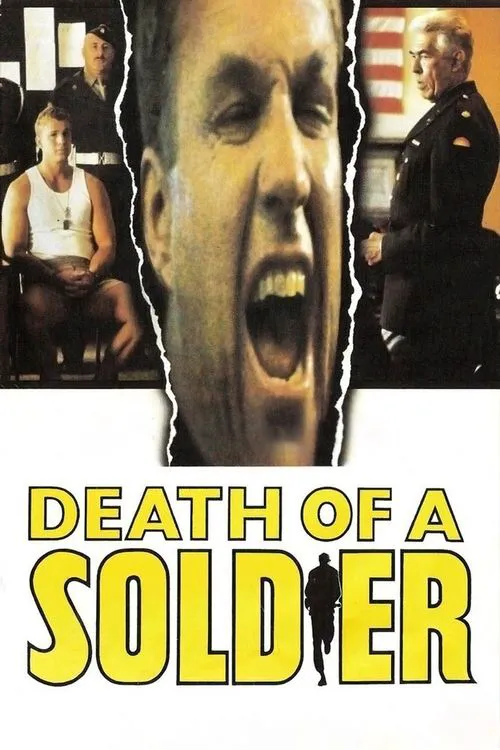Death of a Soldier

Plot
Death of a Soldier, released in 1986, is a film centered around the life of James Coburn's character, Lieutenant Charles "Chuck" Scott, a military lawyer assigned to defend a soldier who confesses to committing heinous crimes. This gripping drama unfolds against the complex backdrop of World War II and the delicate nature of the US-Australian military alliance. The movie revolves around a poignant and complex true story, raising questions about the boundaries of justice, the limits of human psychology, and the demands of wartime politics. The story commences with Lieutenant Chuck Scott, a seasoned military attorney with a deep understanding of the law and an unwavering commitment to upholding the rights of his clients. His latest assignment takes him to Australia, where he meets a defendant in the case of a man accused of murdering three women. The accused, a soldier of the Australian forces, candidly admits to the crimes but presents an unorthodox defense – he believes that by killing the women, he gained their voices within himself. This twisted logic sets the tone for Chuck's journey to defend an accused who may be on the fringes of sanity. As Chuck delves deeper into the case, he becomes increasingly uneasy with his client's claim. He senses a degree of unease and uncertainty emanating from the defendant, which hints at a more intricate and disturbed psyche. The accused man appears to be a complex product of a traumatic upbringing, with a deep-rooted need for human connection that may have led him down a path of violence. However, as the US and Australian military leaders press to expedite the trial, their priorities shift from seeking justice to bolstering the shaky alliance between the two nations. Chuck realizes that the outcome of the case may not be solely about upholding the law, but about appeasing the demands of national politics. The stakes are heightened, and Chuck finds himself at odds with the system he swore to uphold. The character of General Douglas MacArthur is a pivotal figure in this narrative. The iconic general, known for his unwavering commitment to victory, takes an interest in the case, viewing Chuck's defense strategy as a minor obstacle to achieving a broader objective. MacArthur's character serves as a poignant reminder of the complex dynamics at play during wartime. The lines between justice and expediency are constantly blurred, and the demands of national security often overshadow the rights of the accused. As Chuck navigates the labyrinthine world of war-time politics, he grapples with conflicting loyalties. His duty as a lawyer is to defend his client to the best of his abilities, but his sense of duty to the military and the nation often comes into conflict. Chuck's character serves as a poignant and thought-provoking commentary on the moral dilemmas faced by those who serve in the armed forces. Throughout the film, James Coburn gives a captivating performance as Chuck Scott. His ability to convey a sense of moral turmoil and a deep-seated commitment to his client is a testament to his skill as an actor. Coburn brings depth and nuance to a complex character, making Chuck's predicament all the more emotionally resonant. Ultimately, Death of a Soldier poses a series of complex questions. Can justice be served when the pursuit of national security comes at the expense of individual rights? In the heat of war, how far can we go in bending the law to achieve a greater objective? These questions remain as relevant today as they were during the tumultuous years of World War II. In the end, Chuck is forced to make a difficult decision. Will he choose to uphold his duty as a lawyer, or will he succumb to the pressures of the war effort? As the curtain falls on this gripping drama, the audience is left to ponder the moral complexities of a story that lingers long after the credits roll.
Reviews
Recommendations



